After overcoming childhood trauma and working for decades in a distinguished academic career, Pamela is finally devoting herself to a full-time career in creative writing, beginning with her newly released memoir, I’m So Glad You’re Here.
Tell us a little about your background.
I grew up in Western Massachusetts near Springfield, where my father worked in a hardware store for forty years. I remember standing in the hallway of our modest Cape Cod style house, observing what was going on in the kitchen where my mother handled everything from cooking to addressing problems that arose with my three much older siblings. I was born after World War II and was raised more like an only child. Looking back, I think the observational skills I developed early on led to my becoming a writer later in my life.
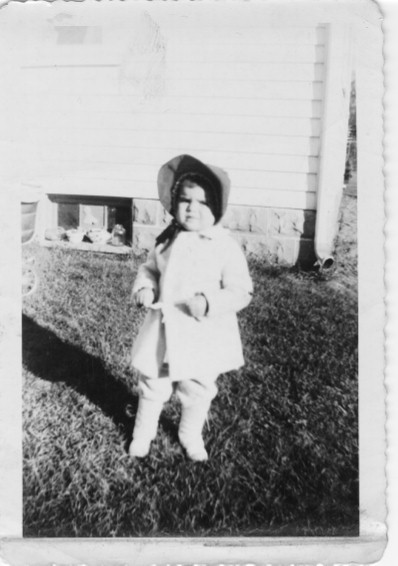
Me at 22 months in backyard of our house in Agawam, Massachusetts where I grew up
I was the only one in my family to go to college. When I was 17, I commuted to Springfield College my first year. At age 18, I witnessed my father’s “nervous breakdown” on Thanksgiving, which was also my mother’s birthday and the week John F. Kennedy was assassinated. After my father had 28 shock treatments, my parents moved to Miami. Soon after, my mother told me that I would have to quit college because my father’s modest pension was nearly depleted from his mental health-related bills. But I would not quit. Instead, I overloaded courses, worked twenty hours a week in a restaurant, and received a local scholarship, all of which allowed me to graduate in three years. My mother, seeing my persistence, was able to help me some with tuition and books.

My mother
After earning a Master’s in Linguistics and Composition Studies from the University of Cincinnati, I worked as an instructor in a writing center at Old Dominion University in Virginia. I won an award from the National Institute of Education (N.I.E.) for a study I did on the role of attitude in the development of writing abilities. A mentor at Virginia Commonwealth University cautioned me to get a PhD before age forty because it was difficult for older women to get tenure-track positions. I went on to earn a PhD in English Education from New York University in 1983. I was 38.
Four years later I accepted a position at Binghamton University to direct a writing program for disadvantaged students. I wrote an innovative textbook called Developing Writers: A Dialogic Approach and directed writing across the curriculum workshops for faculty based on the belief that teaching writing is everyone’s business. In 1998, I won the Chancellor’s Award for Excellence in Teaching.
I have two children whom I raised as a single parent. My son and daughter both earned advanced degrees in different fields. My son, whose specialty is cross-cultural studies, teaches English at a university in China. My daughter, a violinist, lives with her family in nearby Ithaca, NY.

What is your next act?
My next act is pursuing creative writing full time. I’m doing what I love. I’ve come ‘round. I am that child standing in the hallway observing what is going on, but I now use my observational skills as a basis for contemplation.
My newly released memoir, II’m So Glad You’re Here is a story of a family disrupted by the ramifications of a father’s mental illness. The memoir opens with a riveting account of me, age eighteen, witnessing my father being bound in a straitjacket and carried out on a stretcher to a state mental hospital. The trauma I experience escalates when, after my father had electroshock treatments, my parents leave me in a college dorm room and make the move from Massachusetts to Florida without me. I felt abandoned.
While I moved on with my life, this trauma kept resurfacing. Later, when my three much-older siblings and I show up for our father’s funeral, I witness my sundered family’s inability to gather together. Eventually, I am diagnosed with PTSD of Abandonment and treated with EMDR therapy—and finally begin to heal. In the process of writing my story, I discover compassion and empathy as I explore the gaps in everyone’s stories, including my own. I also explore the idea that while the wounds we carry from growing up in fractured families stay with us, they do not have to control us. I hope my reflective journey will inspire readers to think about their own relational lives.
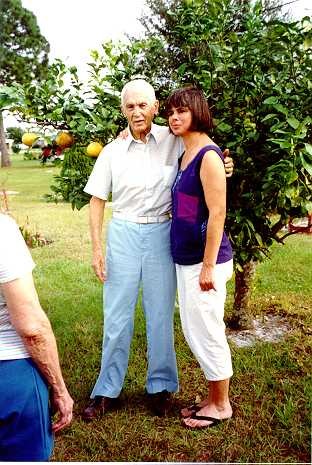
With my father
How did you become an author?
While I’ve been writing creatively for years, in 1999 when I was 54, I won a New York Foundation of the Arts (NYFA) award for creative nonfiction, a new category at the time, with a prize of $7,000. My work in this field blossomed. I went on to win an Independent e-Book Award (in 2000) for my memoir Homecoming, which combined text, image, and sound. An installation sponsored by the New York State Council on the Arts (NYSCA) also included artifacts. I switched from teaching composition to teaching flash fiction and flash memoir, which is my specialty as a writer.
I do what I call JustWrite every day. I lose myself. My self becomes selves, different ways of looking and being. I like to capture what Virginia Woolf called “moments of being”: looking and looking again and seeing as if for the first time. When I first moved to New York State, I wrote letters to an artist friend back in Norfolk, Virginia, and he noted that as my letter went on, I wrote my way into a story. I miss old-fashioned letter writing. I’m going to keep going to wherever writing takes me and hope to bring readers along and invite conversation.

My writing space
How hard was it to take the plunge?
It was harder not to “take the plunge.” Writing creatively makes me feel alive.
How supportive were your family and friends?
When my father was 85, he gave me a subscription to Writer’s Digest magazine. A year later he told me he wanted me to write a play about my mother’s life. He had made some notes. I wrote a flash memoir called “A Conversation with My Father” about how I gently handled his request. (This writing is included in I’m So Glad You’re Here.)
My mother proudly displayed my textbook Developing Writers on her coffee table in her living room. My son and daughter both took to story writing when they were children and they are glad for me now. I’ve also been blessed with friends over the years who have been supportive as well.

My son and daughter, Raphael & Angela, wading together in the sea when she visited him in China (on Hainan Island in the South China Sea)
What challenges are you encountering?
Age: Debut writers of books are usually much younger than I am. Publishers are generally keen on working with someone who has a longer writing career ahead.
Diversity: It’s good that more books today celebrate cultural and ethnic diversity and LGBT writers are getting more attention. And there are more women writers getting recognition. However, these factors also and understandably narrow the market for someone like me: an older white heterosexual American woman of Scottish/English descent.
What did you learn about yourself through this process?
I learned that I can make my way through just about anything, that I’m more than resilient—I’m adventurous, fearless, brave, courageous. I’ve even been called “intrepid” by friends and colleagues.
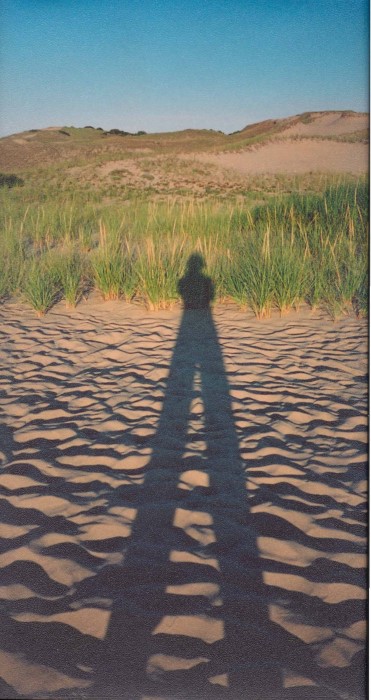
A shadow portrait: I’m a photographer too!
Looking back, is there anything you’d have done differently?
In another life, I wouldn’t have followed my then husband where his work as a professor took him. And then later, after I divorced him, I would have gone to the Iowa Writers’ Workshop, but I could not afford to go nor did I want to move my young children again.
Everything I’ve experienced in my life has played a role in who I am today. I think of coming more fully into creative writing later as a continuation, or expansion, of my earlier work in a different form. There led me to here, which for me is a good place to be for the “rest” of my life. I laugh at using “rest” because writing makes me “restless” in a good way. Something’s always waiting, pushing even, to come forth.
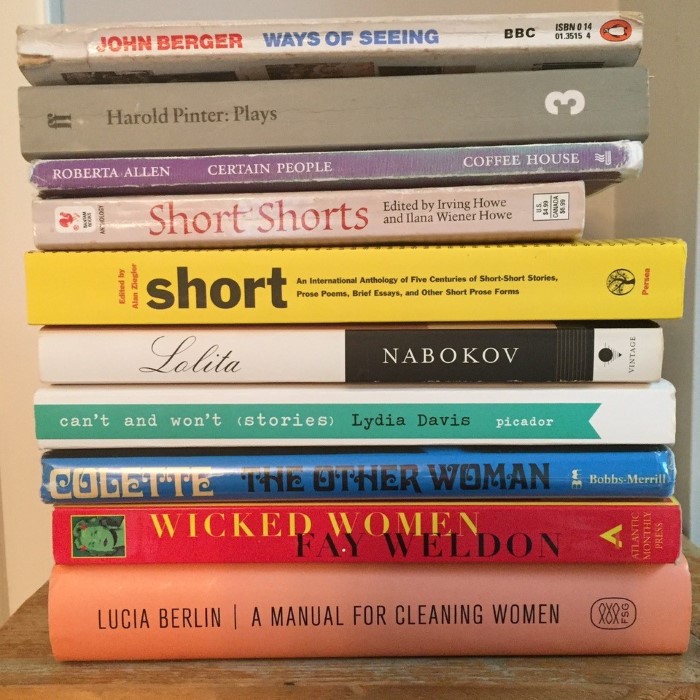
Some of my favorite books
What advice do you have, and resources do you recommend, to would-be writers in midlife or older?
If you’re interested in pursuing writing as a career path later in your life, I would guess that the desire has always been lurking there. Go for it. You get one life, not nine. Don’t miss it or wish you had at the end of your life, which indeed is too late.
I recommend the following resources:
“5 Over 50,” by staff, Poets & Writers, November/December 2019. The stories of the debut authors featured in our fourth annual 5 Over 50 trace the unique, sometimes long, and often winding paths that lead to publication.
In Our Prime: How Older Women Are Reinventing the Road Ahead by Susan J. Douglas
“Young and Adorable: Rewriting the Narrative of Women Writers’ Success,” by Miciah Bay Gault
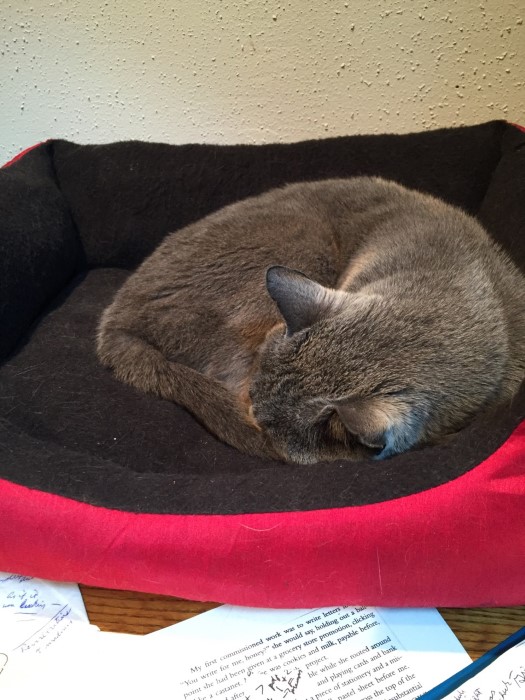
My cat keeps me company while I write!
What’s next for you?
I plan to continue to publish in literary magazines and I am working on a chapbook collection of what I call micro.stories. I would also like to do a collection that includes text and image. I’m interested in exploring several topics related to my memoir: healing from trauma, empathy, and domestic abuse.
I’ll try to keep up with myself! Writer Julia Alvarez calls herself at age seventy an “elder,” which to me sounds too old. I remember when my mother turned seventy-five, I pinned on her blouse a button that said “RUDE & BOLD.” How we laughed. Yes, I think I have many more next acts in my future.
Connect with Pamela Gay:
Email: pgay@binghamton.edu
Website: pamela-gay.com
Books:
Developing Writers: A Dialogic Approach
I’m So Glad You’re Here: A Memoir
Social media links:
http://www.facebook.com/pamela.gay.148
Instagram: @innerhebrides
Pamela Gay is the recipient of a New York Foundation for the Arts (NYFA) award in creative nonfiction and an Independent e-Book Award for her memoir Homecoming, which combined text, image, and sound. An installation sponsored by the New York State Council on the Arts (NYSCA) included artifacts. Her writing has been published in Brevity, Iowa Review, Midway Journal, Paterson Literary Review, Monkeybicycle, Grey Sparrow, Vestal Review, Iron Literary Review, and other literary journals, as well as in two anthologies. Gay is professor emerita at Binghamton University, State University of New York, where she taught courses in flash memoir and flash fiction. She lives in upstate New York.
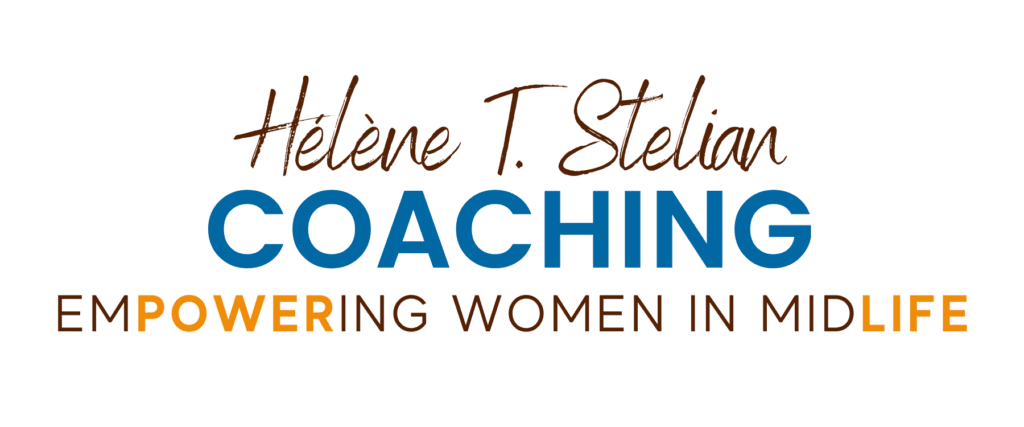

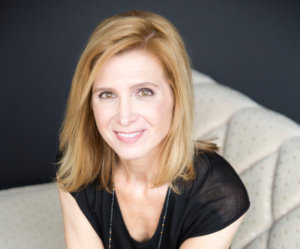
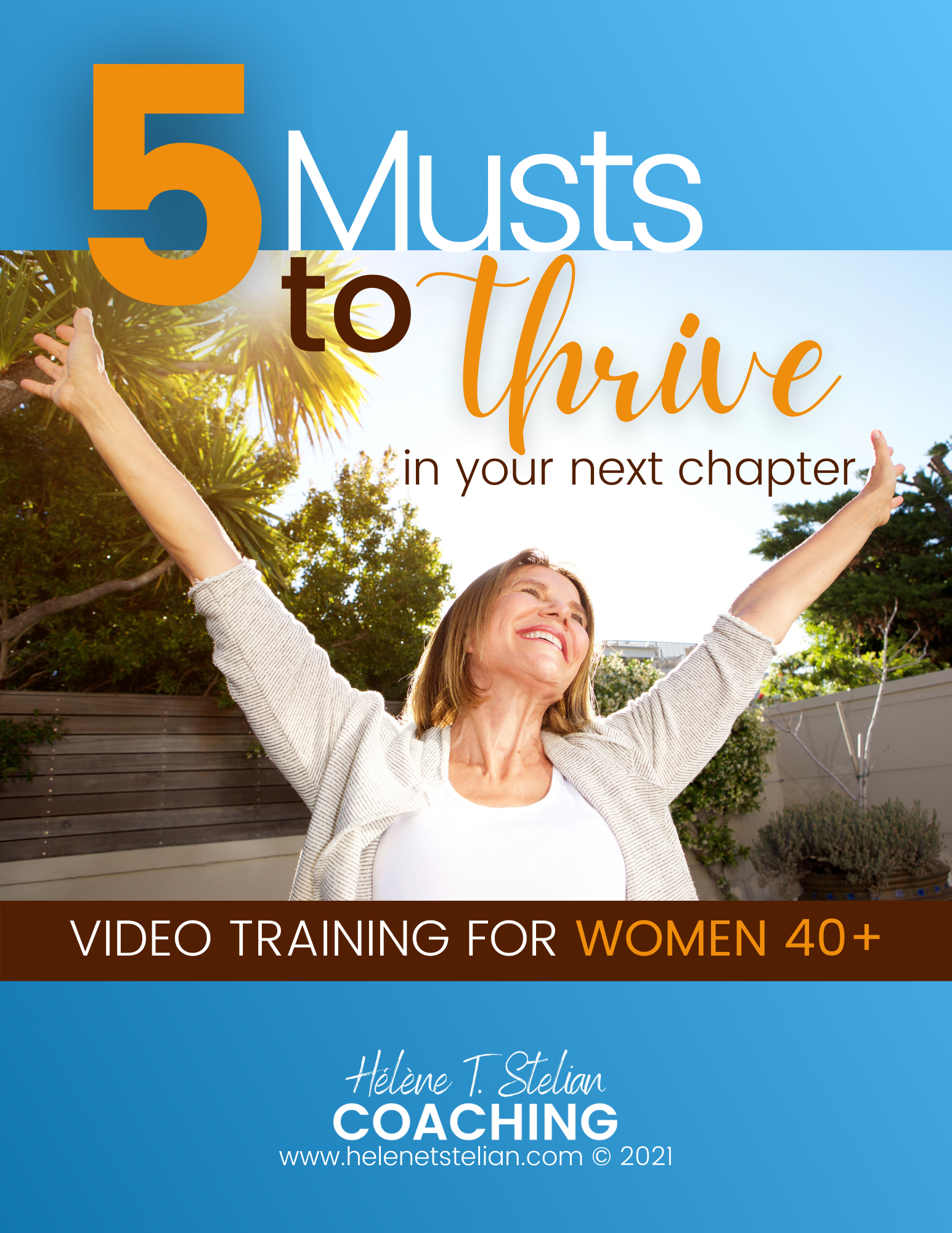



I was thinking of Los Altos HS while arguing with a retired English teacher over wisdom of marking student writing efforts with red pen.
It’s very frowned upon now. I hated the stress and anxiety of writing. Shakespeare English, ’61-62 school year was so hard for me.
Years later I found my voice thanks to Professor P. Gay.
Bless you!!